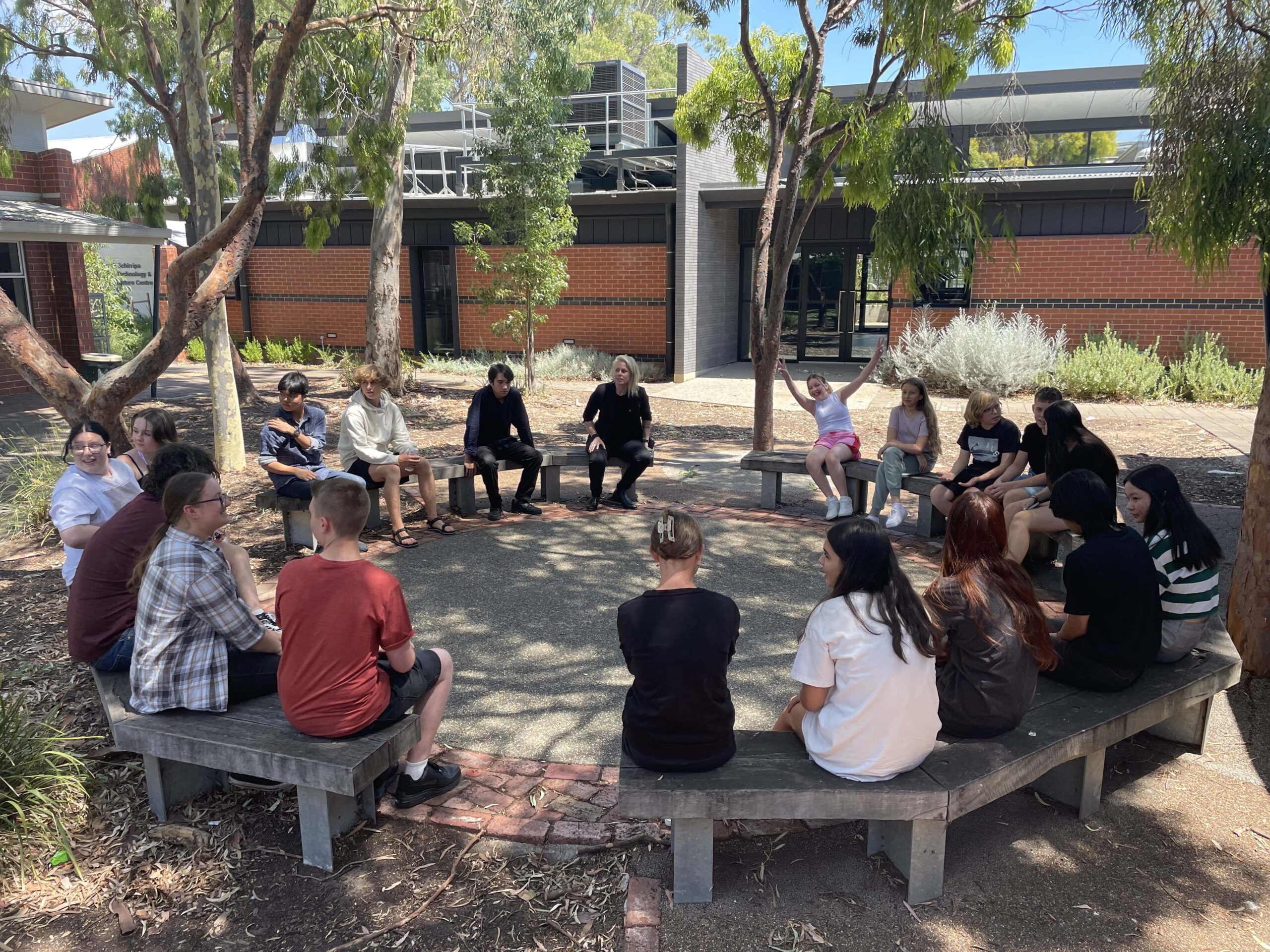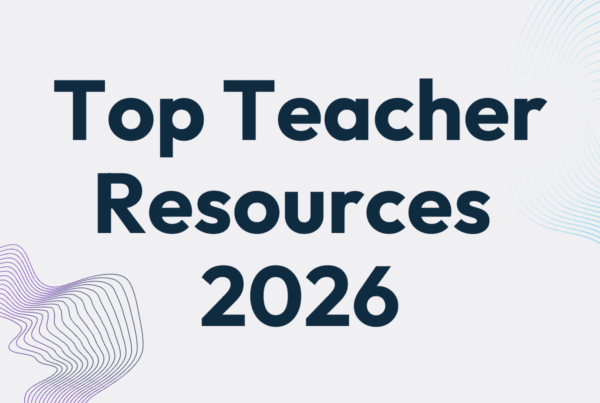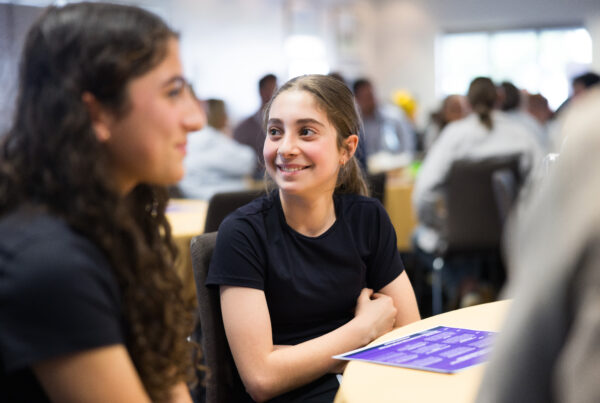
Enterprise Skills are Superpowers
by Jen Buchanan, Program Director (Engagement)
Have you ever wondered about the skills and competencies that young people need to thrive in today’s rapidly changing world of work?
In today’s fast-paced and ever-evolving world, the demands placed on young people have undergone a profound transformation. The traditional set of skills and competencies that centre around rigid curricula and standardised testing, once considered sufficient for success in the 21st century no longer fully meet the needs of our rapidly changing landscape.1
The dynamic nature of industries and the advent of new technologies have necessitated a critical re-evaluation of what it takes for young individuals to thrive and make a meaningful impact in their world. And as we navigate this shifting paradigm, it becomes clear that a fresh perspective is needed to equip the younger generation with the essential tools and competencies required to succeed in the modern era.
Fostering enterprising mindsets.
Our team at Future Anything is dedicated to reimagining education and supporting educators to create a more dynamic and inclusive education system.
Together, we are committed to reimagining the education system and empowering educators to create a dynamic and inclusive learning environment. This ambitious undertaking calls for a profound paradigm shift in our perception of education and how we cultivate the skills necessary to foster enterprising mindsets among young people.
At Future Anything, we take great pride in our flagship in-curriculum Activate program and our Student Workshops, which are designed to empower students with the six key Enterprise Skills essential for nurturing an enterprising mindset and fostering entrepreneurial thinking.
These skills (often referred to as 21st-Century learning skills in literature), encompass:
- Problem-solving
- Communication
- Adaptive Mindset
- Creativity and innovation
- Project management
- Critical thinking.2
A deep dive into enterprise skills literature
Let’s delve deeper into the literature surrounding the six enterprise skills identified by Future Anything.
Problem Solving
Problem-solving skills have gained significant recognition as a crucial aspect of education and is the ability to “engage in cognitive processing to understand and resolve problem situations where a method of solution is not immediately obvious”.4 Providing students with authentic problem-solving experiences allows them to develop analytical abilities, think critically, and generate innovative solutions. It is essential to integrate both cognitive and metacognitive strategies, equipping students with the necessary tools to tackle challenges confidently. 5

Problem Solving in Action.
Students we work with are encouraged to identify real-world challenges and put their minds to work in devising innovative solutions. This dynamic process sparks their creativity, cultivates their analytical thinking abilities, and sharpens their problem-solving skills. One of our flagship activities in both our workshops and our Activate program is the ‘root-cause tree’. This activity encourages students to dig into the causes and consequences of a given problem, and helps them look beyond the symptoms to what is really behind the problem they have chosen. It’s also a great litmus test for how engaged and enthusiastic the young person is about their chosen problem. Check out the resource with some examples here

Communication
Effective communication is a highly valued skill in today’s professional world, as emphasized by extensive literature and research. The Foundation for Young Australians’ report here highlights the economic impact of communication skills, revealing that jobs requiring presentation skills offer an additional earning potential of $8,853 per year compared to roles without such skills. By enhancing communication abilities, individuals can seize professional opportunities, foster meaningful connections, and advance in their careers.
Communication in Action:
We believe in empowering students with valuable skills for effective communication and public speaking. One of the ways we do this is providing students with a platform to showcase their ideas through pitch presentations. This opportunity allows them to articulate their thoughts clearly, express their ideas with confidence, and engage with diverse audiences. We are committed to nurturing the next generation of confident and persuasive communicators who can make their voices heard and inspire positive change. Check out our Future Anything National Grand Final video here.
Adaptive Mindset
When Alvin Toffler published Future Shock in 1970, he said the ‘illiterate of the 21st Century will not be able to read and write, but rather those who cannot learn, unlearn, and relearn.’ Toffler’s words still resonate today, highlighting the enduring importance of an adaptive mindset. As we navigate an era of unprecedented technological advancements, globalisation, and constant change, the ability to adapt and embrace new knowledge and skills becomes paramount. As defined by the OECD, an adaptive mindset involves being open to new experiences and ideas, adapting to changing circumstances, and continuously learning and developing.7
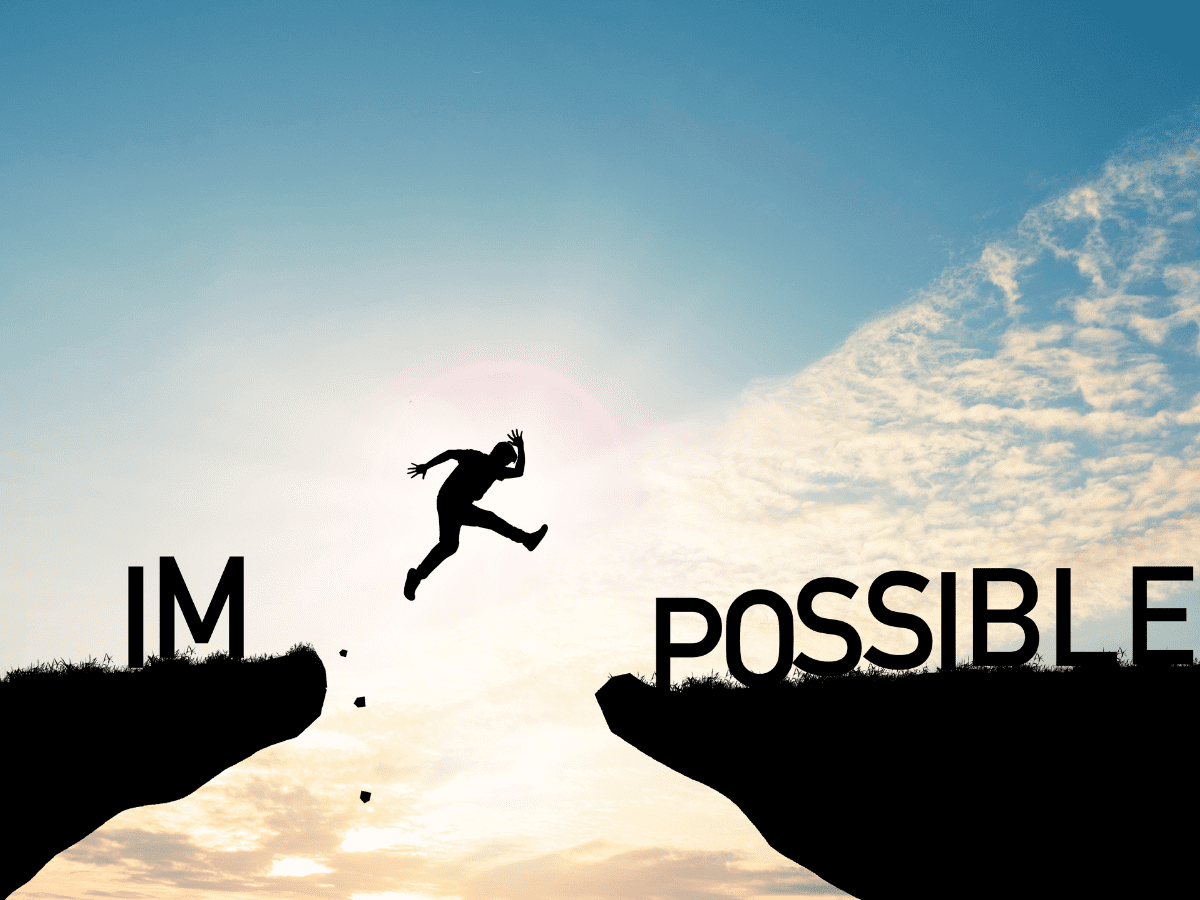
Adaptive Mindset in Action:
With engagement in interactive activities and thought-provoking provocations, students develop the capacity to embrace uncertainty, pivot when needed, and seize unexpected opportunities. We encourage students to see ‘Feedback as Fuel’, and teach them to give and receive feedback using established norms. The feedback protocol we use is “I like, I wonder…” (adapted from Stanford University’s d.School).
We always start with what we “like” about the idea. This should be specific and helpful, e.g. ‘I like the way you can personalise the product with your name’. Critical feedback comes in question form, and can be used to ask questions or suggest improvements. For example, ‘I wonder if people will understand how to order their food?’ or, ‘I wonder if you could use more environmentally friendly materials?’.
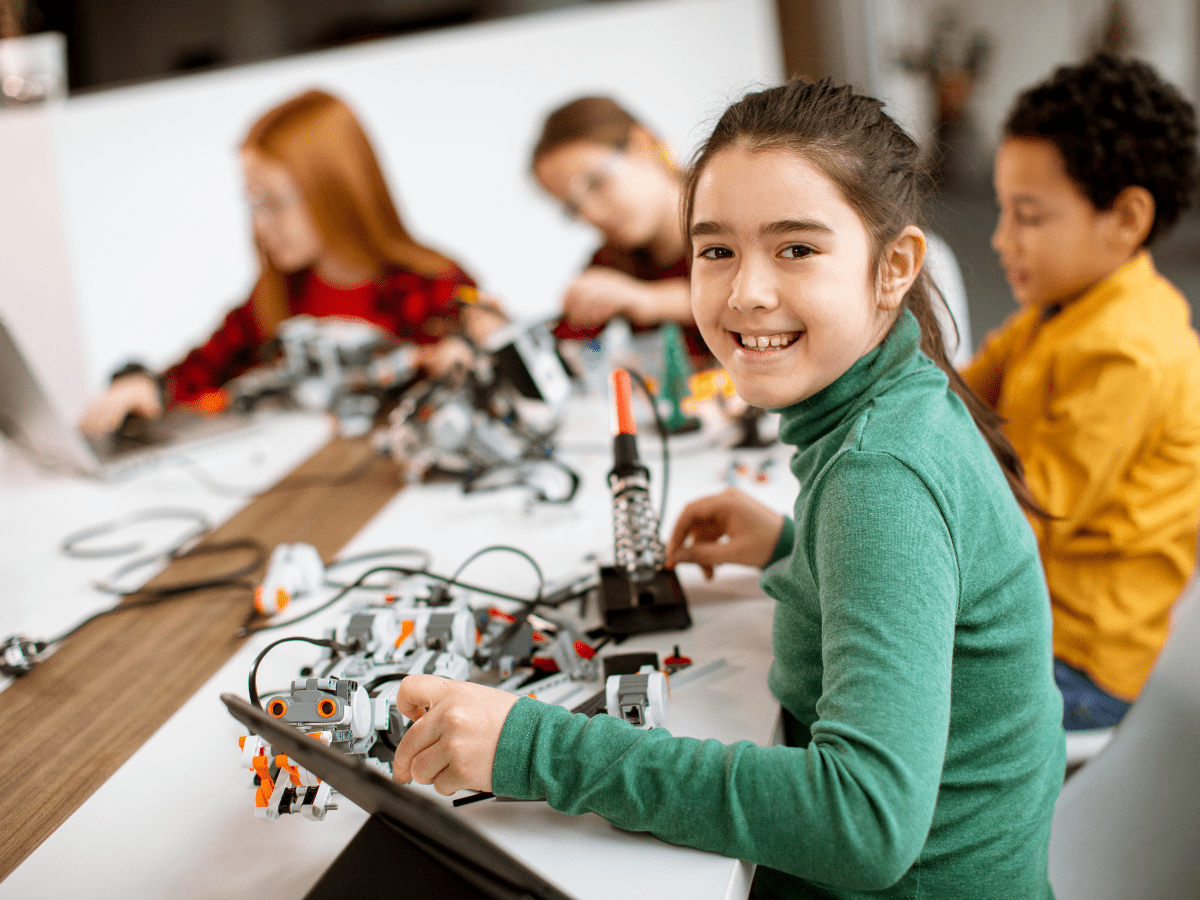
Creativity and Innovation
By embracing creative thinking and innovation, students become active participants in their education, fuelling their curiosity and interest in the world around them.
By shifting away from memorisation-focused assessments and towards real-world opportunities that give students ability to generate and implement creative ideas, we equip our learners with the skills to contribute original ideas, tackle complex problems, and drive positive change in their communities.
This shift is supported by the literature, which emphasise creativity and innovation as crucial skills for success in our fast-paced world, where individuals must adapt and respond to evolving demands.
Creativity and Innovation in Action
At Future Anything, we love to ignite the creative sparks in students. One of our standout activities is the exciting Ideation session, where we encourage students to embark on a thrilling journey of idea generation (Idea + Creation = Ideation).
During this activity, students are challenged to identify a problem and unleash their imagination to come up with as many solutions as possible. It’s an opportunity for students to think outside the box, push their boundaries, and explore innovative ways to address real-world challenges. Check out our blog on Building Classroom Creativity here or watch our YouTube video on Building Classroom Creativity.
Project Management
At Future Anything, we embrace the concept of Project Management instead of traditional teamwork.
In this approach, each student understands their role and recognises their strengths within the group dynamic. Drawing inspiration from the communities of practice literature, Project Management involves a collaborative effort where individuals come together over an extended period to exchange ideas, strategies, and problem-solving solutions. 8
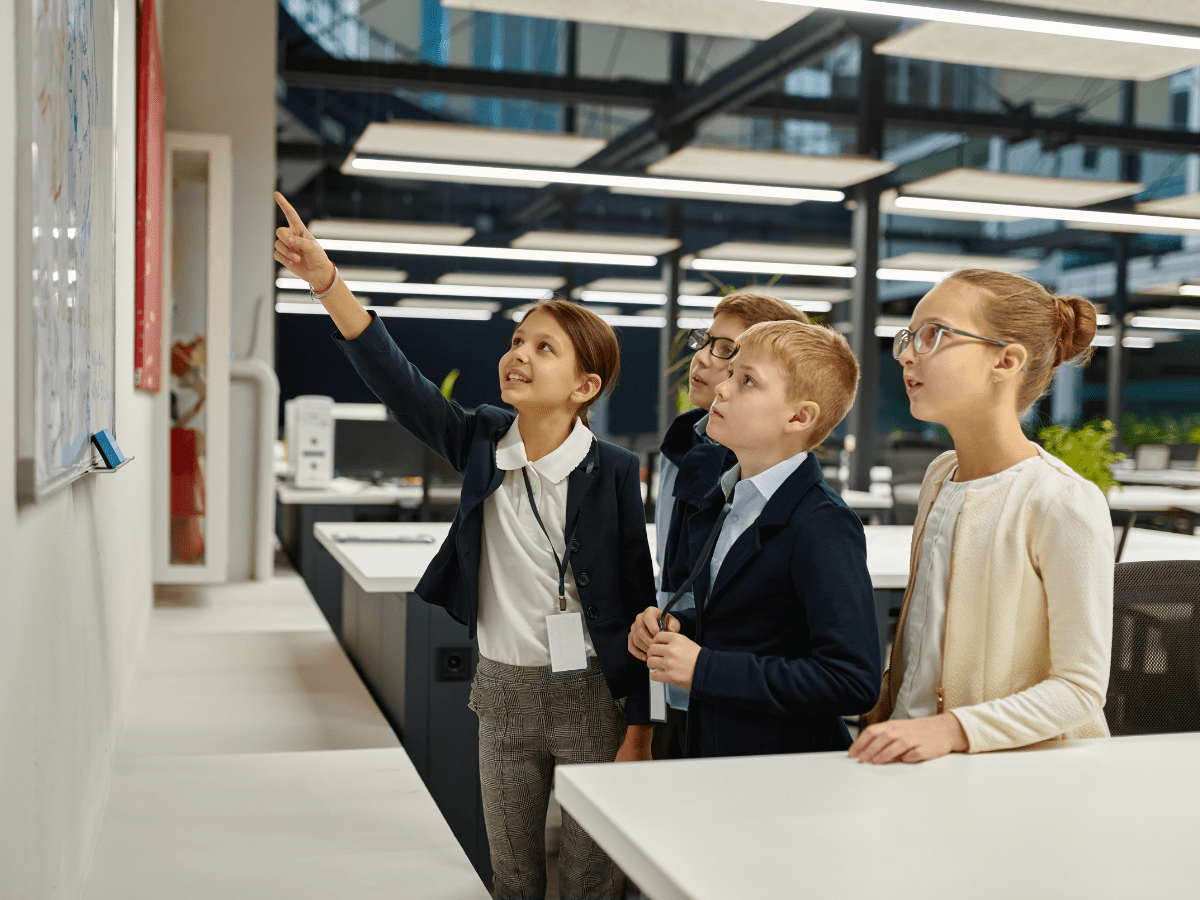
By embracing Project Management, we empower students to develop crucial teamwork skills while engaging in meaningful collaboration. This approach encourages innovative thinking, effective communication, and adaptability, preparing students to navigate the complexities of a diverse and ever-changing world.
Project Management in Action
We encourage students to break out of their comfort zones and collaborate with peers beyond their immediate social circles. In these workshops, students unite based on shared interests and passions, forming diverse groups that bring together unique perspectives and strengths. By working together and leveraging their strengths, students gain valuable insights, develop teamwork skills, and cultivate a deeper understanding of collaboration. Read more about Effective Project Management including great tools and tips here.
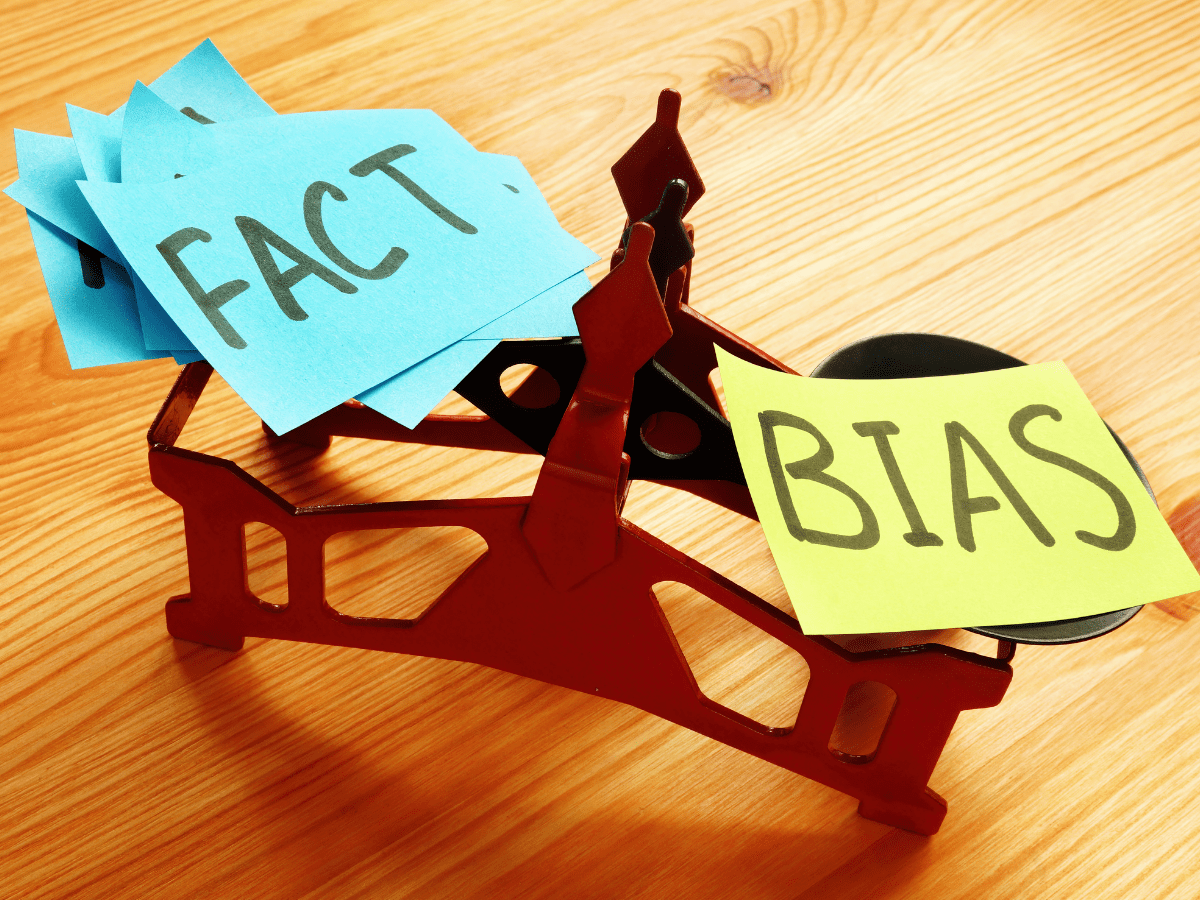
Critical Thinking
In education, critical thinking plays a pivotal role in nurturing skills necessary for future success and is widely recognized as an essential competency for success in the 21st Century. It enables learners to ability to evaluate information critically, reason logically, and make informed judgments and decisions.
The OECD emphasises the importance of integrating critical thinking skills across all disciplines within the curriculum, rather than teaching it as a standalone subject.7
This holistic approach cultivates learners’ abilities to analyse diverse perspectives, question assumptions, and make informed decisions based on evidence. The integration of critical thinking throughout the curriculum empowers students to become adaptable problem-solvers and equips them with the competencies required for success in both academic and professional realms.
Critical Thinking in Action
Through the guidance of our experienced facilitators and curriculum, we help students navigate the intricacies of critical thinking, exploring multiple perspectives, evaluating possibilities, and honing their ability to think outside the box. Our Unconscious Bias Check In asks students to examine what they think they know about a given topic, and encourages them to seek out the expert voices that will help them establish the facts and build the credibility of their solutions.
Enterprise Skills are Superpowers
The six enterprise skills that underpin the work of Future Anything are the superpowers that will equip students for the future of work.
The research emphasises that these skills are not just nice-to-have, but essential for young people to thrive in a rapidly changing global economy and by nurturing these capabilities, students become confident and resilient, ready to tackle any challenge and come up with innovative solutions7.
By engaging in our workshops and Activate program, young people become problem-solvers who are able to navigate diverse teams, work collaboratively, and communicate with an enterprising approach to learning and life. In doing so, they’ll be set up for the big wide world beyond our school gates.
Isn’t this what education is all about?
References
- Reid, A. (2018). Beyond Certainty: A Process for Thinking About Futures for Australian Education. Commissioned by the Australian Secondary Principals’ Association (ASPA). University of SA https://www.saspa.com.au/w-content/uploads/2018/08/aspa0001_Monograph_digital.pdf
- Chalkiadaki, A. (2018). A Systematic Literature Review of 21st Century Skills and Competencies in Primary Education. International Journal of Instruction, 11(3), 1-16. https://doi.org/10.12973/iji.2018.1131a
- Enterprise skill definition https://www.merriam-webster.com/dictionary/enterprising
- (2014). PISA 2012 Results: Creative Problem Solving: Students’ Skills in Tackling Real-Life Problems. https://www.oecd.org/pisa/keyfindings/PISA-2012-results-volume-V.pdf
- Lamb, S., Maire, Q., & Doecke, E. (2017). Future Frontiers Analytical Report. Australian Council for Educational Research (ACER). https://inventorium.com.au/wp-content/uploads/2020/06/Key-Skills-for-the-21st-Century-Analytical-Report.pdf
- (2016). The new basics: Big data reveals the skills young people need for the new work order. https://www.fya.org.au/app/uploads/2021/09/The-New-Basics_2016.pdf.
- (2018). The Future of Education and Skills: Education 2030. OECD Publishing. https://www.oecd.org/education/2030/E2030%20Position%20Paper%20(05.04.2018).pdf
- Lave, J., & Wenger, E. (1991). Situated learning: Legitimate peripheral participation. Cambridge University Press.
About the author: Jen Buchanan
Jen is a future focused educator who has forged a career as an educator in progressive schools in Australia and around the world. With a track record of creating positive, engaged and innovative learning environments in schools and adult learners, Jen is Program Director (Engagement) at Future Anything, where she leads and delivers a range of engaging, inspiring workshops and learning experiences for educators and students.
Jen is accomplished keynote speaker and presenter, and has a practical understanding of how to develop messages, create connection and energy with audiences and focus on learning outcomes.
Connect with Jen on LinkedIn here.
Future Anything’s Activate in-curriculum program and student entrepreneurship embed enterprise skills in every classroom.
Find out more about student workshops here and our teacher professional development workshops here. If you’d like to chat about bringing Future Anything to your school, get in touch here!



